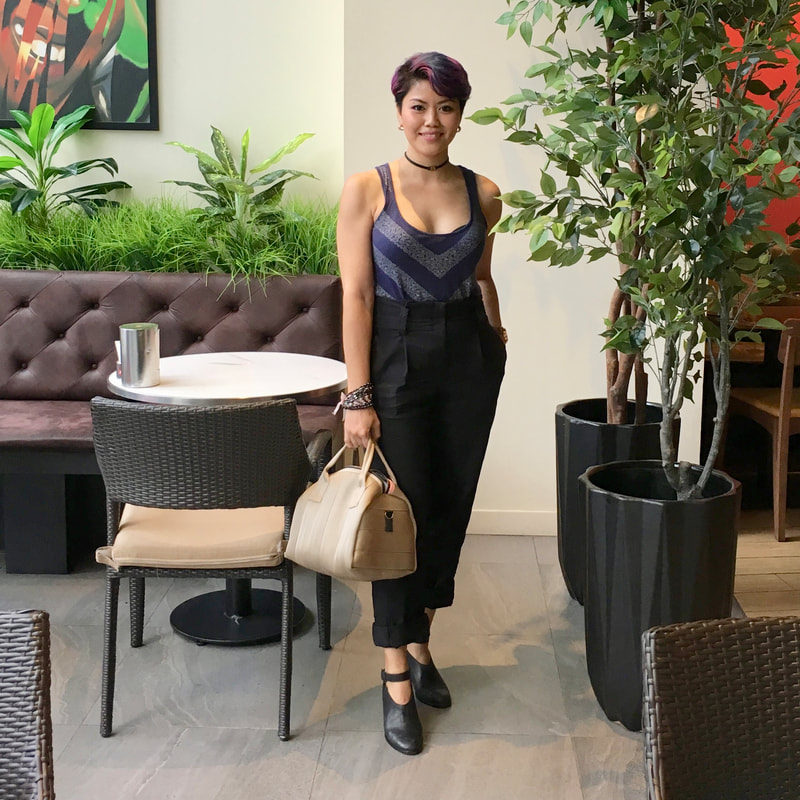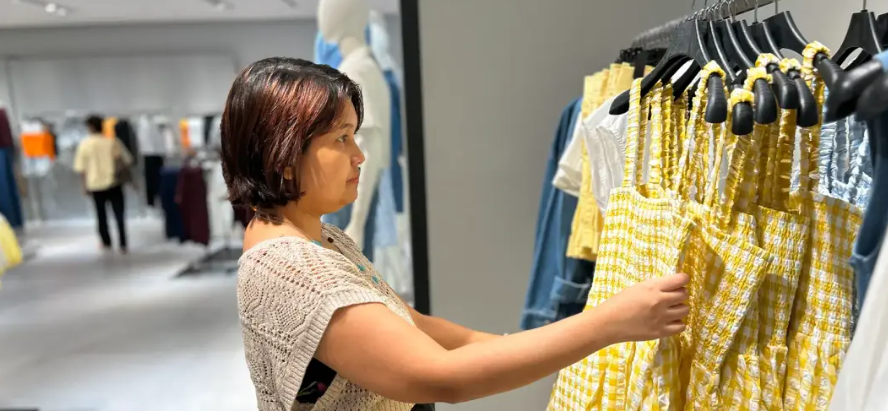Oh, what a week that was!
This year I was privileged to have experienced the buzz that is Kuala Lumpur Fashion Week (KLFW), 21-25 August. I have been covering a few stories for Blu Inc Media recently and so when I was asked about attending a few shows, I couldn’t say no! Now in its 7th year, founder Andrew Tan has always reserved a runway show for emerging designers and collections that put emphasis on #sustainable design principles, as well as showcase Malaysian #heritage for the world to see.
1463 words; 7 min read
Above feature photo: I tried to look my best at KLFW 2019. I had the best accessory – Biji Biji Ethical Fashion handbag made from rescued seatbelts!
This year however, I feel like the stakes have been risen much higher and the pool of brands, organisations and communities that have banded together to create meaningful impact is bigger than it’s ever been. Suffice to say, sustainability in fashion, especially in the Malaysian context, has matured well beyond anybody’s expectations, or more so, mine.
I feel I am qualified to say this because when I arrived in KL in early 2018 to plot the players in the current canvas, I thought the scene was pretty small. I found that there were only a handful of brands that took sustainability seriously, because as a Conscientious Fashionista, it’s all about sieving through the clever marketing and asking what qualifies as ‘sustainable’ in their product lines. Sustainability to me is a holistic approach in your business ethos, from your supply materials through to the ingredients that make up your product down to the way your employees are feeling in their respective workstations… whether their take home pay is enough to make a good living, to how much you minimise waste in your design process and whether your workflows and systems follow a standardised baseline for compliance, and documenting all these; being transparent about the what, who, where, how and why that goes into your product to your customers and stakeholders, recognising that sustainability is a journey, not perfection. Most importantly, I’m weary that brands use the word ‘sustainable’, ‘ethical’ and ‘fair’ without meeting certain respective benchmarks.
…I’m weary that brands use the word ‘sustainable’, ‘ethical’ and ‘fair’ without meeting certain respective benchmarks.

Design to Sustain runway at KLFW, 23 Aug 2019
Biji Biji Initiative
Admittedly, I’m a little late to the game because I only entered the ‘scene’ in January last year. But with that, my sample size is much wider, and gave me bigger room to statistically evaluate the status quo. I had been on a mission to connect with local sustainability practitioners, eventually building a database of such individuals and organisations. Very early on, I came across Biji Biji Initiative.
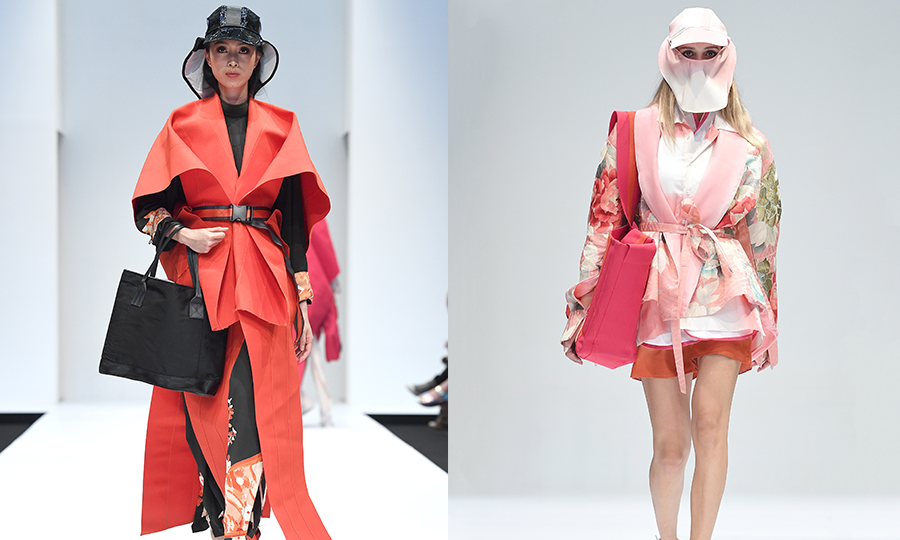
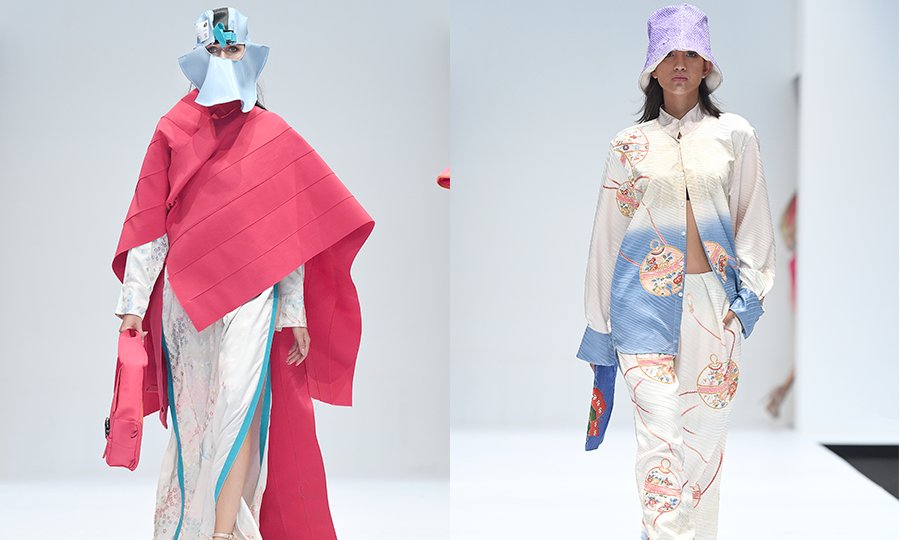
I was impressed by Biji Biji’s business model from Day 1. They are a social enterprise that started off with a focus on sustainable lifestyle education and making things out of waste, stemming from their passion for design, technology and art, but organically branched out to other specialities pretty quickly. I first heard about them in late 2017. Biji Biji Ethical Fashion is one of their departments that provides for traction in the sustainable fashion space, where salvaged items and waste materials are turned into clothing and accessories.
Instantly, looking at the quality of the product line, I was mesmerised. My initial thought was that they’ve got it right. And they have such high standards of integrity (having a full-time staff that measures their impact and writes their sustainability reports is one such example) that you won’t find loopholes in their story unless you’re being real picky (and nasty.) And trust me, I’m thorough.
Biji Biji Initiative’s model of doing business with impact actually works, and it’s quite darned impressive. This is rooted in the style of business management envisioned by its CEO, Rashvin Pal Singh, but I won’t elaborate on that here. The way they do business is part experimental, part clever innovation, and part corporate high-brow.
Setting the (Sustainable) Scene
Even though Biji Biji Ethical Fashion is a brand that speaks for itself, let’s not pretend that Sustainable Fashion is not a niche field, especially in South East Asia. It sits somewhere as a subset within the wider circle of healthy-eating, yoga-practising, and environmentally-conscious population, but even within this group of aficionados, it’s a very separate field that only rarely gets recognised as an extension of the set.
When I was plodding my way through the key players in this space earlier last year, I discovered the OGs that paved the way for creating the opportunities in sustainable fashion who we have the pleasure to recognise now, both on and off the runway. Brands like Biji Biji Ethical Fashion, EarthHeir, Fugeelah, and Batik Boutique are pioneers in Malaysia for creating product with more than just profit in its purpose. It’s 2019, however, and I can say the scene has flourished.
The way they do business is part experimental, part clever innovation, and part corporate high-brow.
Is it just me or has there been a fair few brand names that have come out of the woodwork in the last couple of years? You can’t go past a shopping mall in Bangsar, PJ, Sunway, KL or Ampang nowadays without coming across a zero waste-inspired pop-up store, a ‘naked’ food joint, or a home décor boutique that sources from social enterprises and local start-ups.
The boom in health and mindfulness is not new, but to see sustainability having touched fashion, fabric, and design is surely the more exciting evolution in the conscious living space!
Design to Sustain
So here we are on an eventful Friday afternoon where the fashionable attendees wait patiently for the 1:30pm show to start.
Design to Sustain is an initiative to express KLFW’s support towards sustainable and ethical fashion. It’s a showcase that is supported by the Commonwealth Fashion Council of UK (of which KLFW is a member) to reveal the immense power that fashion has to create positive impact, in alignment with the United Nation’s Sustainable Development Goals.
As the emcee presented the show, the audience was introduced to a video about Design to Sustain and how it came about. Shortly after, our designers made their collection debuts on the runway. Daphne Lim, winner of last year’s AirAsia Runway Ready Designer Search set the tone with her collection with clean, structured pieces. SeanSheila, the Singapore-based fashion label kicked off the rest of the afternoon, with utilitarian ensembles in greys, blacks, and mustard. This was followed by Ayu by Tarik, a womenswear sister label to the famously homegrown brand Tarik Jeans, that paraded their debut collection in conjunction with SURI Lifestyle’s upcycled denim bags. (SURI is a social enterprise that empowers single and underprivileged mothers by handcrafting products using upcycled denim.) In the midst of the runway parades, we take a pause as Kloth Lifestyle, a recycling movement to divert fabric from landfills, presented a video on the effects of fast fashion on the environment, and raise awareness on the huge waste issue that exists in fashion. (Watch the video above.)
Biji Biji Ethical Fashion x Tsyahmi x Nakakoma Orimono debuted their wonderfully extravagant collection inspired by Nusantara Pahlawans and Japanese Samurais and Geishas. You could practically hear me go ooooh and aaaah at the collection, a brand I’ve been a fan of for so long, and feel so invested in. I’m so very proud of them! Their collection proves to the world that fashionable items need not cost the Earth, and that there’s plenty of materials we willy nilly discard every single day that can be turned into beautiful clothes.
Bev C closed the session with their ode to zero-waste construction using pre-loved clothes, and my little adventurous afternoon ended on a very high note.
AirAsia, who has hosted the AirAsia Runway Ready Designer Search (AARRDS) since 2016, was also a supporter of #DesignToSustain this year by hosting a challenge, called Rethink and Recontruct.
Rethink and Reconstruct challenged 13 designers from past finalists and winners of AARRDS to reimagine outfits and accessories bought with a budget of RM150 from Jalan Jalan Japan (secondhand store of all things from #Japan)— and the results were a feast for creativity, such a feat! Each entry of the challenge graced the catwalk, which turned the afternoon’s activities up a notch. A challenge like this is my favourite thing in Sustainable Fashion because its constraints harnesses innovation and forces a paradigm shift in design thinking. I thoroughly enjoyed all the designs and was pleased their creations received exposure to new audiences.
#SustainableFashion is an exciting space to be in right now because people are recognising the need to create meaningful impact within existing processes and channels, and this is why I love where this is going: doing more, with less.
Sustainable Fashion is an exciting space to be in right now because people are recognising the need to create meaningful impact within existing processes and channels.
Congrats KLFW on giving sustainability a platform this year. Did anybody else attend the Design to Sustain runway? Do you have any favourite looks? Feel free to share, as I’d love to hear your thoughts. All in all, I’m looking forward to the scene getting better in 2020!
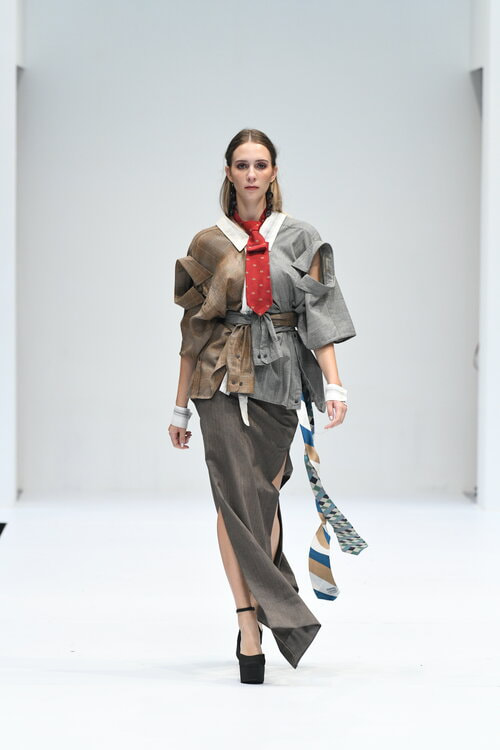
References/brand listing
Please note; I have listed the designers involved in Design to Sustain at KLFW 2019 here, and any associated information on their collections. The designers whose sustainability credentials in their collections I cannot vouch for, due to a lack of publicly available information, is marked with an asterisk (*)
- Daphne Lim *
- SeanSheila (@sean_sheila) *
- KlothKares (@klothlifestyle)
- Ayu by Tarik (@ayubytarik) * https://www.youtube.com/watch?v=k0BTbPekUf4
- SURI (@surilifestyle)
- Biji Biji x Tsyahmi (@bijibijiethicalfashion @tsyahmi) https://bijibiji.co/pages/shop-klfw2019
- Bev C (@bevcclothingbrand) https://www.bevcclothingbrand.com/bev-c-klfw-runway-collection
For a list of Malaysian brands that I’ve recently discovered that I believe do some good work in the sustainable fashion space, I have provided this below, correct at time of writing.
- Kain Movement (@kainmovement)
- Munimalism (@munimalism)
- Tanoti Crafts (@tanoticrafts)
- Cotton & Sago (@cottonandsago)
- Nysa Kapas (@nysakapas)
- Happy Hopscotch (@happyhopscotchmy)
- Sustainabbbility (@sustainabbbility)
Give these brands a follow, if you haven’t already! As per usual, if you are a brand who is interested in going on a sustainability journey, but don’t know where to start, then this is where you call me. I provide assurance services for sustainability claims that backs up your credibility in this space. Remember: sustainability is a journey, not perfection, but if and when you do go down this enlightened sense of business, however small your footsteps start — please do it right.
Join us in our Slow Fashion movement with the hashtags #ConscientiousFashionista and #wardrobetruths on Instagram, and follow us at @fashinfidelity.
Tags: #KLFW2019 #KLFW #fashion #designtosustain #kualalumpurfashionweek #kualalumpur #rethinkandreconstruct #ethicalfashion #sustainablefashion #ecofashion #greenfashion #responsiblefashion #circularfashion #circularity #conscientiousfashionista #fastfashion #slowfashion #sustainability #wardrobetruths #fashioneducation #fashionisnolongertrendy #fashion #saynotofastfashion #fashionnews #innovation #design #designthinking #designingoutwaste #unsdg #sdg
Shameless plug: for 10% off your purchase at Biji Biji Ethical Fashion, please use my affiliate code ‘SEBIJINAJAH’ at checkout (excludes their KLFW runway collection.)

